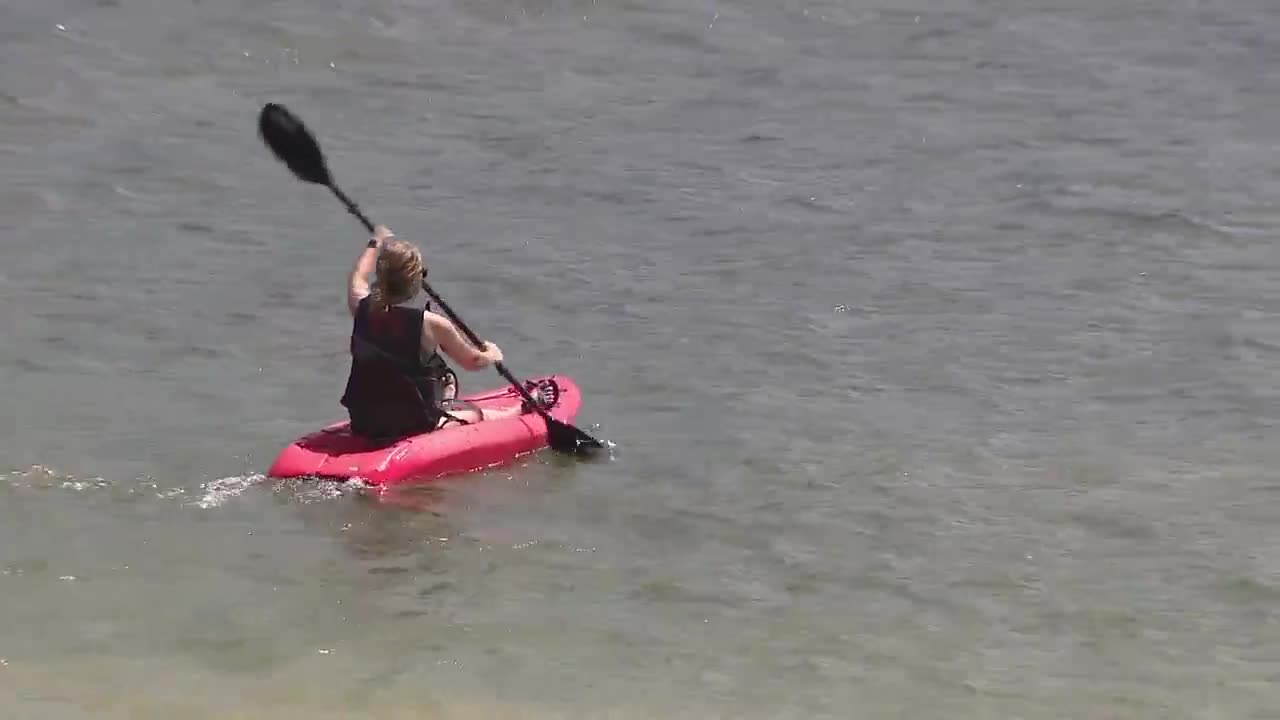JORDANELLE RESERVOIR, Utah — Tiffinie Wolf was on the Provo River with her daughter when their paddleboards flipped.
"And in all of that my sandal got caught," she said Monday, recalling the experience.
It resulted in her being trapped with her head barely above water.
"The current kept trying to pull me forward and under the water, but my life jacket kept preventing it," she told FOX 13 News.
Body camera video of her rescue shows how dangerous the situation was. Wolf is now pleading with people to wear a life jacket.
"I've even been one of those not wearing a life jacket," Wolf said. "But always, always, always wear a life jacket. There’s no replacing that, and you can’t go back and make that decision differently."
Water safety tips after back-to-back drownings in Utah reservoirs:
Wolf was joined by Utah's Department of Natural Resources in urging people to be safe and smart with another holiday weekend approaching and reservoirs and other recreation hotspots expected to be packed. Over the weekend, the state grappled with drownings and other rescues. On Saturday, Hill Air Force Base Airman Angel Harris drowned after cliff jumping at Causey Reservoir. That same day, a 39-year-old from Salt Lake County presumably drowned while swimming at Yuba Lake.
"We had quite a few incidents and we don’t want those same incidents to happen the 24th of July weekend," said Chief Todd Royce of DNR's Division of Law Enforcement at a news conference at Jordanelle Reservoir on Monday.
When it comes to floatation devices, the agency said not many are doing it beyond those required to under the law. Boat inspections on the water have revealed that only 6.7% of people are voluntarily wearing life jackets.
"There’s required individuals and we’re doing pretty good with those that are required especially children," Ty Hunter with Utah's Division of Outdoor Recreation told FOX 13 News. "Once we get outside that required area? It’s not happening."
Problems are not confined to water. Capt. Chase Pili said they have also seen more OHV accidents caused by people not taking the appropriate safety measures and being unfamiliar with the terrain they are in. He urged people to keep their arms and legs inside the vehicle and their safety harnesses on.
Capt. Pili said they are also seeing more DUIs on boats and OHVs.
"Those boats and machines are already hard to operate without those influencing factors," he said, adding it is treated the same as being behind the wheel of a vehicle.




